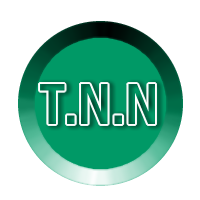Facebook unveiled major changes to the news source of its 2 billion users on Friday and announced that it would rank news organizations based on credibility based on user feedback and reduce its role as a referee of the news that people are seeing.
The move came after the company had to endure harsh criticism because it allowed disinformation to spread across its social network and favor liberal business over conservative ones. In a blog post accompanying the announcement, CEO Mark Zuckerberg wrote that Facebook is not “comfortable” and decides which news sources are most trustworthy in a “world with so much separation.”
“We have decided that it is most objective for the community to determine which sources are generally trustworthy,” he wrote.
The new trust ranking will emerge from surveys conducted by the company. “Well-known” outlets, which are confirmed by a sizeable cross-section of users, are seeing an increase in readership, while lesser-known organizations or start-ups that receive poor ratings see their web traffic in the social network drop significantly. Changes to the company include efforts to improve the content of local news agencies, which suffered significant subscription and reader losses as the news consumption migrated online.
The changes follow another major redesign of the news feed announced last week, in which Facebook said that users would see less content from news organizations and brands that prefer “meaningful” posts from friends and family. Currently, 5 percent of Facebook posts are generated by news agencies. This number should fall after the redesign on 4 per cent, said Zuckerberg.
Facebook and other Silicon Valley giants are struggling with their roles as dominant information providers in a time of manipulation of social media platforms by foreigners and declining revenues for many media. On Friday, Google announced that it would stop a two-month experiment called the Knowledge Panel, which informed its users that a news article had been attacked by independent companies to verify facts. The conservatives had complained that the feature was unfairly aimed at a right-wing branch.
According to the Pew Research Center, more than two-thirds of Americans receive their news from social media. This transformation has strengthened Facebook and Google, putting them in an awkward position to decide what messages to distribute to their global audience. But it also raised questions about whether these companies should be viewed as media companies.
Daniel Kreiss, a professor at the School of Media and Journalism at the University of North Carolina at Chapel Hill, said Facebook will now “shift” its responsibility for accuracy and quality to its users. “Only by bringing things to a vote that the community sees as trustworthy undermines the role of any serious institutionalized process to determine what quality is or is not quality,” he said.
Facebook was also the target of allegations of political partisanship. In summer 2016, Facebook was accused of excluding conservative media from “trending topics”, a list of top stories running on the top right of Facebook pages. After an investigation, the company found that it had left the ranking decisions to the subcontractors.
In the end Zuckerberg invited conservative media figures to the Facebook headquarters in Menlo Park to apologize for the misunderstanding.
He also made the decision to dismiss the contractors who served as editors of trending topics, opting instead for a more technological approach. However, the outsourcing of the decision to software algorithms led to further criticism that the social network had become vulnerable to bad actors who wanted to disseminate disinformation.
The issue exploded during the presidential campaign when false content, as Pope Trump advocated for President, generated more traffic than stories of mainstream news sales, and investigators discovered that Russian workers used the social network to spread disinformation and divisive content.
Jay Rosen, a journalism professor at New York University, said Facebook has learned the wrong lesson in trending topics, trying to avoid politics at all costs. “One of the things that can happen if you’re determined to avoid politics at all costs will drive you to illusionary solutions,” he said. “I do not think there’s an alternative to your verdict, but Facebook is convinced that it’s there, and the idea that they can avoid the verdict is part of their problem.”
Surveys of the credibility of the media have varied widely over the years, in part because of the political beliefs that determine how Americans view news organizations. A survey conducted last year by the Missouri School of Journalism found that Buzzfeed and Breitbart were among the least credible sources, while The Economist and “public television” were the most trusted country.
Facebook revealed few details about how it conducts its trust surveys and refuses to share copies with the Washington Post. But Zuckerberg wrote that the decision came after a significant internal debate.
“The difficult question we were facing is how to decide which news sources are commonly trusted,” Zuckerberg wrote. “We could try to make that decision ourselves, but that’s not something we feel good about, we’ve been thinking about asking external experts who would take the decision out of our hands, but probably would not solve the objectivity problem. – the community – and your feedback determines the ranking. “

